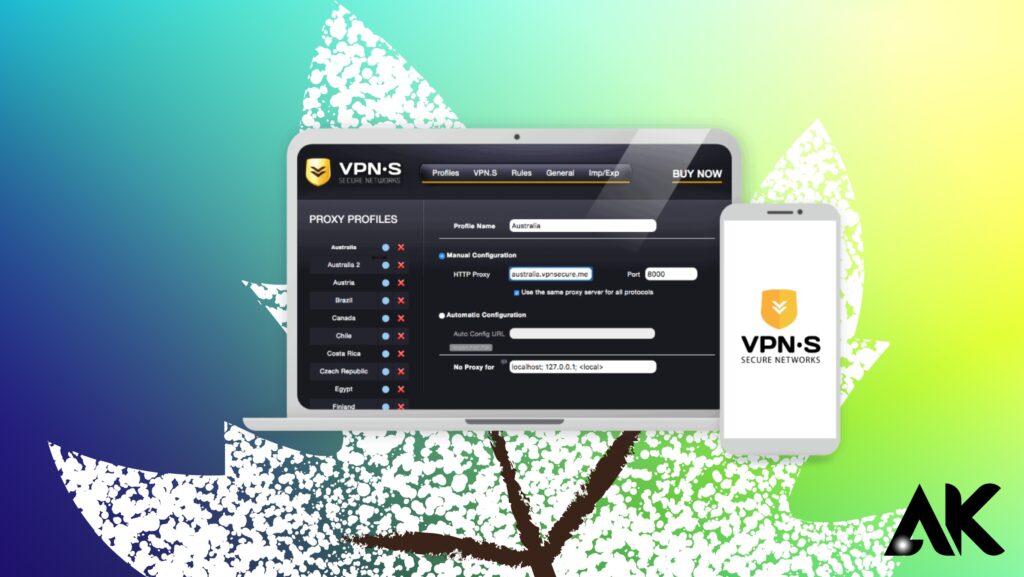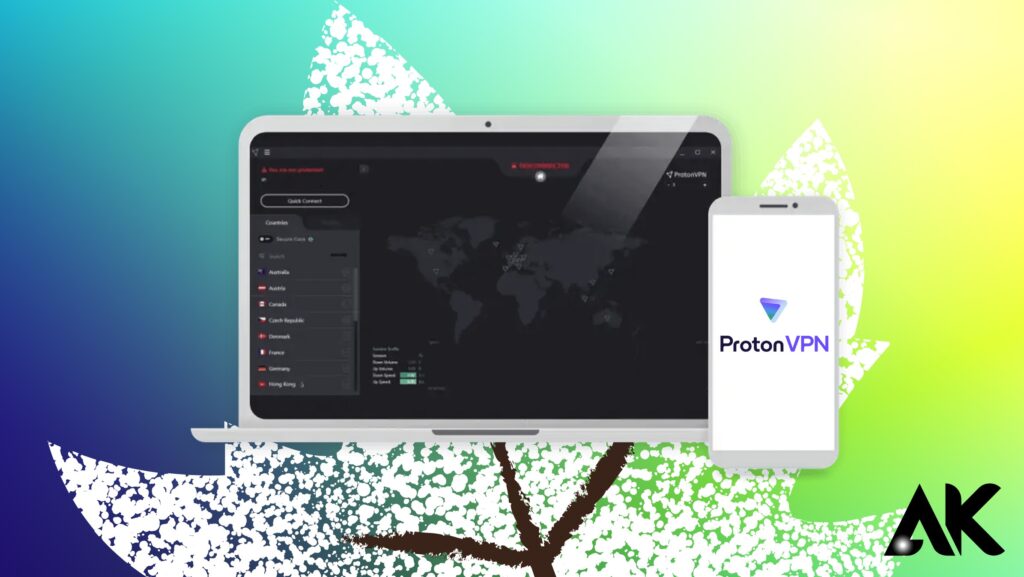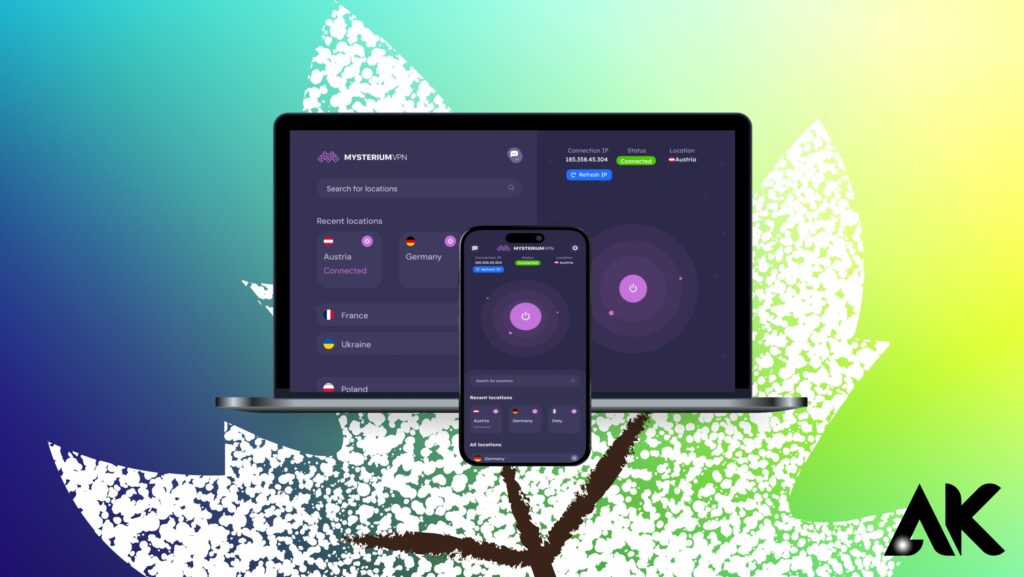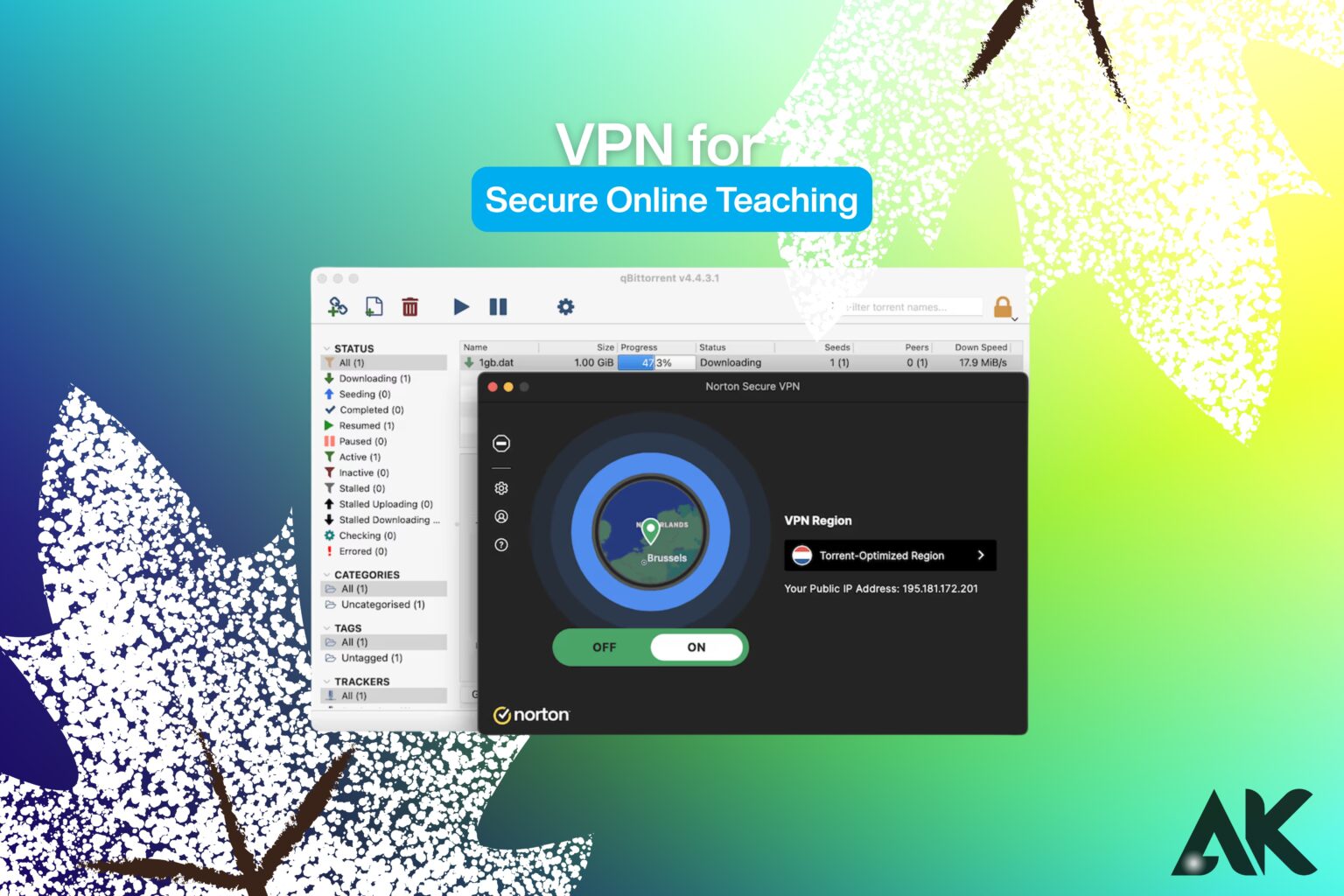VPN for secure online teaching Have you always challenged the security of your online courses? Given how much of modern education takes place online, it’s critical to consider when your online classes are safe from hackers, trackers, or prying eyes. Without the proper security, your personal information could be in danger whether you are a student or an instructor. A VPN is therefore needed for safe online instruction.
By protecting your online activities and hiding your IP address, a virtual private network (VPN) protects your internet connection. This feature suggests that nobody can pry into your private discussions, shared data, or online classes. No matter where you are, we’ll go over how a VPN for secure online teaching may make your classes more effective, smooth, and safe.
In this blog post, you’ll learn why a VPN for secure online teaching is necessary in today’s digital education era, what features to look for, and which VPNs are best for educators. Whether you’re teaching from home or abroad, a VPN helps keep your internet connection safe, ensures student data privacy, and even improves access to learning platforms that may be blocked in some countries.
Why You Need a VPN for Secure Online Teaching

Online teaching offers many possibilities, but it also includes several issues. Your connection may be at risk of cyberattacks if you don’t have a virtual private network (VPN) for secure online learning. This is particularly true if you’re using public Wi-Fi or less secure home networks. By encrypting your internet traffic, a virtual private network (VPN) makes it nearly impossible for hackers to intercept your data or follow your online activities. Teachers that use student management systems, share important materials, or conduct live video classes should consider using a VPN.
Access to global educational materials is another important benefit of using a VPN for secure online teaching. A VPN can alter your virtual location and enable you to use learning management systems, Zoom, Google Classroom, and other platforms without any problems if specific websites or resources are restricted in your area. Furthermore, it ensures that internet providers won’t impede or throttle your connection, which improves the reliability and speed of teaching sessions.
Challenges Teachers Face Without a VPN

There are several problems that teachers have when they teach online without a virtual private network (VPN). Exposure of student and personal information is a frequent issue during video chats or while uploading assignments to cloud-based applications. If not properly encrypted, this data is susceptible to theft or leakage. Additionally, some instructional content may be blocked by government firewalls or school networks, which would limit your teaching resources.
Internet filtering or restrictions in some nations can also hinder the transmission of lessons. By granting unfettered access to the open web, a VPN for secure online education helps get over these restrictions. It helps preserve your ability to teach, access, and exchange knowledge without hindrance or threat and keeps your connection private.
Benefits of Using a VPN for Teachers and Students

There are numerous ways that using a VPN for secure online teaching benefits students, in addition to teachers. It safeguards educators’ confidential conversations, lesson plans, and intellectual property against interception or disclosure. A VPN offers comfort when grading homework or posting test materials online. A VPN facilitates access to resources like academic databases, communication platforms, and YouTube lessons for students, particularly those taking classes from countries with stringent internet control or restricted areas.
Furthermore, by lowering lags and buffering problems during video conversations, using a VPN for safe online teaching can enhance class consistency. VPN servers frequently avoid Internet throttling, which certain ISPs may impose during periods of high traffic. Everyone will benefit from a more seamless learning process as a result of fewer interruptions during crucial in-person classes or group discussions.
VPN for Secure Online Teaching: The Future of Education
It is impossible to overestimate the significance of a VPN for secure online teaching as we look at the future of online education. Teachers require reassurance that their online classrooms are secure from cyberattacks due to the growing dependence on digital platforms. By masking personal IP addresses and encrypting data, a VPN helps make that a reality and creates a secure environment for both students and teachers.
Furthermore, as the world becomes increasingly interconnected, virtual private networks (VPNs) facilitate access to educational content that may otherwise face blocking in certain regions. A VPN provides access to a larger body of knowledge, making global learning more inclusive and accessible, whether you’re attending an international conference or teaching a student from across the globe.
How to Maintain VPN Security During Online Classes
Maintaining best practices for safeguarding your teaching environment is crucial, even when employing a VPN for secure online teaching guarantees a high level of protection. To guarantee ongoing security when taking online programs, follow these straightforward steps:
- Regularly Update Your VPN Software: VPN providers often release updates to improve functionality and security features. Keep your VPN software updated to benefit from the latest encryption and security protocols.
- Enable the Kill Switch Feature: This crucial feature cuts off your internet connection in the event of a VPN failure. This option prevents any accidental data exposure if your VPN connection drops unexpectedly during class.
- Use Strong, Unique Passwords: For the VPN account and any teaching-related accounts, ensure that you use strong and unique passwords. Consider using a password manager to store and generate complex passwords for added security.
- Limit VPN Access on Shared Devices: If you are sharing devices, ensure that only you have access to the VPN settings or passwords. These measures will prevent unauthorized individuals from disconnecting or tampering with the VPN during online sessions.
Top VPNs for Secure Online Teaching
| VPN Provider | Key Features | Why It’s Great for Teaching |
|---|
| ExpressVPN | Fast speeds, strong encryption, easy-to-use apps | Ideal for smooth video lessons and real-time class discussions |
| NordVPN | Double VPN, CyberSec (ad/malware blocker), no-logs policy | Offers extra privacy and protection during online classes |
| Surfshark | Unlimited device connections, CleanWeb (blockers), affordable | Great for teachers using multiple devices or sharing with family |
| CyberGhost | User-friendly, streaming optimized servers, automatic kill switch | Simple to set up and stable for long online sessions |
| ProtonVPN | Based in Switzerland, strong privacy laws, free plan available | Reliable privacy and security without extra costs |
Using a VPN Across Teaching Devices
A decent [VPN for secure online teaching] should support all of your teaching supplies, no matter whether you use a laptop, tablet, or smartphone. Many VPNs offer browser extensions and apps for Windows, macOS, Android, and iOS. Thus, you can teach from home, school, or on the go without worrying about your devices.
Furthermore, you can automatically secure all of your connected devices by setting a [VPN for secure online education] on your home router. This feature is useful for remote or hybrid educators who need to manage big files, talks, or video classes across several devices. A virtual private network (VPN) gives your online classroom a strong layer of security.
Tips for Choosing the Right VPN for Secure Online Teaching
When selecting a [VPN for secure online teaching], it’s crucial to consider specific features that ensure both safety and smooth teaching experiences. Here are some tips for choosing the right VPN for your online classes:
- Speed and Performance: For seamless video calls and uninterrupted live sessions, choose a VPN that offers high-speed servers and minimal latency. Seek services that offer optimized servers for streaming and video conferencing to keep your classes smooth and glitch-free.
- Strong Encryption: Ensure that the VPN you choose offers robust encryption standards (like AES-256) to safeguard your data from hackers or any unauthorized access. With the sensitive information you’re handling, especially with student data, security should always be a priority.
- Compatibility with Teaching Platforms: Some VPNs may not work well with specific platforms such as Zoom, Google Meet, or Microsoft Teams. Test the VPN with the platforms you use for teaching to avoid any compatibility issues that could disrupt your lessons.
- No-Logs Policy: Choose a VPN with a strict no-logs policy. This feature means the VPN provider doesn’t keep records of your online activities, which is important for maintaining privacy during your teaching sessions. Such anonymity is essential if you’re working with students from different countries, ensuring that no data breaches occur.
- Multiple Device Support: Many teachers use more than one device for teaching, whether it’s a laptop, tablet, or phone. Choose a [VPN for secure online teaching] that supports multiple devices, ensuring that your security remains consistent across all platforms you use.
Conclusion
VPN for secure online teaching The next phase of education is online, but it needs to be reliable, secure, and private. One of the best ways to safeguard both you and your students while taking advantage of the flexibility offered by virtual classrooms is to use a VPN for secure online teaching. This ensures a stable connection, secure data, and constant access to international learning materials.
Choosing a [VPN for secure online teaching] that meets your workflow and safety needs is important, no matter whether you go with ExpressVPN, NordVPN, Surfshark, or CyberGhost. Please consider launching your online classroom to create a safe, adaptable, and empowered learning space.
FAQs
Why is using a VPN crucial when teaching online?
Your data is secured, your internet connection is secure, and your online communications are shielded from prospective hackers when you use a VPN for online instruction. It helps protect kids’ and teachers’ privacy, particularly while utilizing unprotected or public Wi-Fi networks.
Would it be possible to enhance the quality of my video calls when teaching online with a VPN?
Indeed, by avoiding any throttling imposed by your internet service provider (ISP), a VPN may be able to enhance the quality of video calls. To guarantee that there is less lag during video conferences, pick a high-speed VPN.
Does utilizing a VPN for online instruction carry any risks?
Although VPNs offer extra security, utilizing a free or unreliable VPN might come with hazards, including poor performance, data leakage, or dubious privacy policies. To prevent these possible problems, it’s critical to select a trustworthy VPN provider.
Which VPNs work best for teaching online?
ExpressVPN, NordVPN, and CyberGhost are a few of the top VPNs for online instruction. These VPNs are well-known for their fast servers, robust encryption, and first-rate privacy features, which make them perfect for uninterrupted and safe learning environments.
What configuration should a VPN have for online instruction?
It’s easy to set up a VPN for online instruction. Download and install the VPN software on your device after registering with a VPN provider. After installation, choose a server location and establish a connection. You can now safely conduct your online classes because your internet connection is secure.

